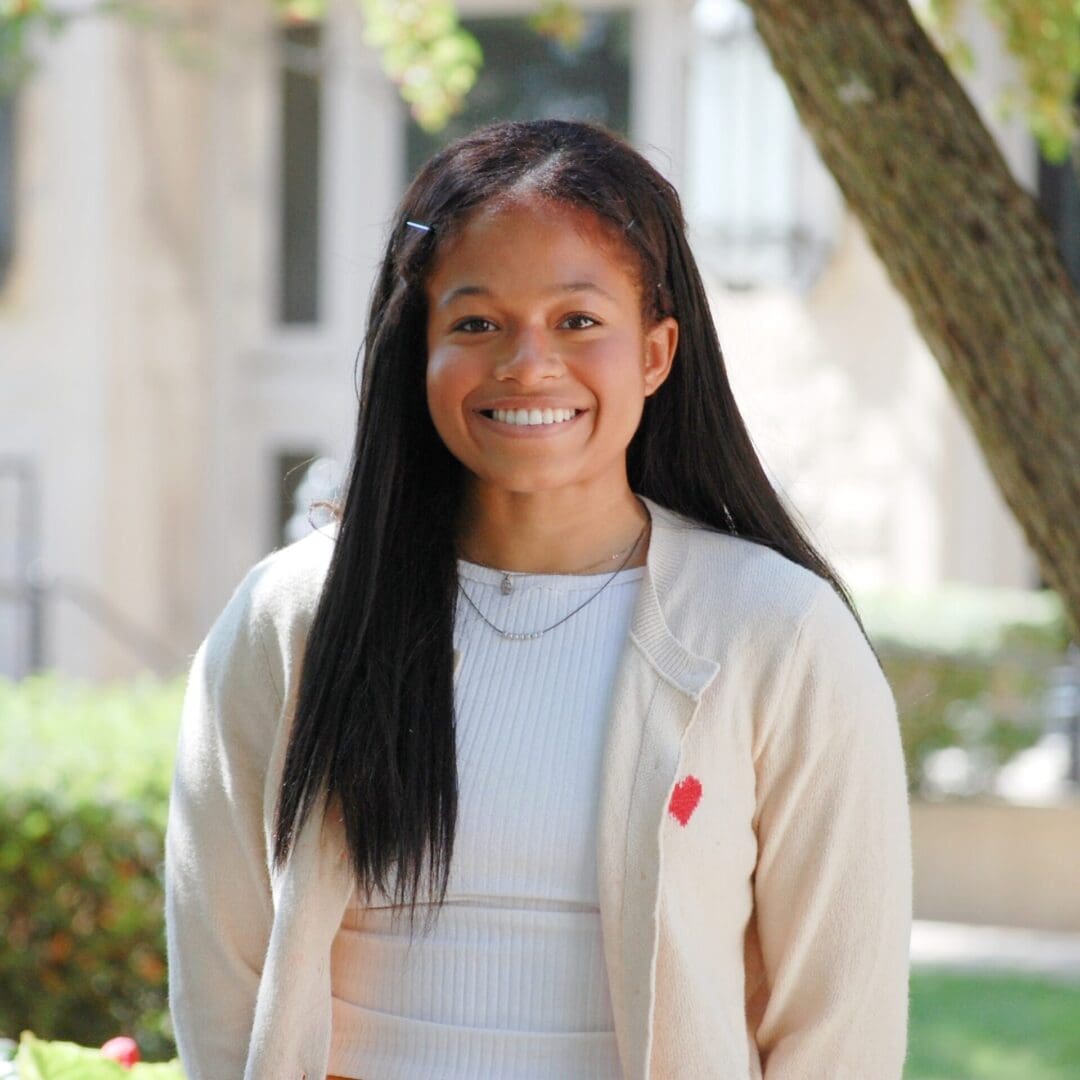Every interracial relationship is different. However, one idea remains constant in all of these pairings is that race matters. By this, I mean race should not be the determining factor in whether or not you choose a romantic partner, but it should be something that you take time to understand about your partner. Being in an interracial relationship myself, I have found that there are not many current resources that discuss the challenges of being a part of an interracial couple. The key to succeeding as an interracial couple lies in the ability of both partners to empathize with the perspective of the other. Unfortunately, that is easier said than done, as mixed couples face numerous unique challenges. Luckily, there are methods and tools that these couples can use to overcome these difficulties. To accurately understand not only the obstacles faced by interracial couples, but the ways to solve these issues, it is essential to have a well-rounded understanding of what exactly a mixed couple is.
What is an Interracial Couple?
Interracial couples involve people of “different socially constructed racial groups” (Gonlin & Hannon, 2023). Interracial dating in the United States has a complicated history. This is due in large part to the troubled relationships between different minority groups, as well as white people (Rose & Firmin, 2013). Interracial marriages were outlawed until just 55 years ago when the US Supreme Court put an end to the state laws that banned interracial marriages (Seider & Huguley, 2023). This extensive ban on the pairing explains why research about interracial relationships is so lacking. Despite this, the number of interracial couples has increased significantly in recent years. In fact, “marriage between African-American males and Caucasian females increased eight-fold over a period of three decades, and marital rates between African-American females and Caucasian males rose as well” (Rose & Firmin, 2013). In addition to the increase of interracial marriages, an improvement in the attitudes toward interracial relationships has also occurred over the past several years (Ranzini & Rosenbaum, 2020). As mixed couples become more and more widespread, the distinctive challenges they face must be discussed and understood.
Challenges Unique to Interracial Couples
Every couple faces obstacles while on the path to being in a supportive and healthy relationship. For mixed couples, however, these obstacles are unique because of each partners’ different background, religion, traditions, culture, etc. Leslie and Young on Interracial Couples in Therapy: Common Themes and Issues put it best, “Not only must interracial couples navigate all the typical challenges of partnered life, such as integrating two families, negotiating gender roles, establishing effective patterns of communication, decision making, financial management, and maintaining mutually satisfying emotional and sexual interaction, but these couples also face unique challenges arising from a highly racialized society” (Leslie & Young, 2015). The main difficulties discussed in couples therapy, that are unique to interracial couples, have been found to be:
- Social Support: Negative attitudes towards mixed couples increase the pressure on them to force their relationship to succeed, and prove naysayers wrong. The lack of support from friends and family has a significant toll on interracial relationships. Additionally, the scrutiny of strangers in everyday settings, also has been noted by couples as being a difficult norm to overcome. Even assumptions about the intentions of the pairing are challenged by outsiders. It has been found that black men assume that black women who date white men are “social climbers” (Gonlin & Hannon, 2023). When the people who are supposed to support you the most, discourage who you choose to love, it can create an environment too negative for the relationship to continue. Furthermore, in a qualitative study conducted by Rose and Firmin (2013) on interracial dating among college students, one student named Kari described the reaction her mother had toward her interracial relationship with her boyfriend. Kari states, “After [my mom] initially met him, she would make negative comments to me about him and our relationship. However, after she saw him more and especially after he stayed with us for a couple of weeks, she was more approving of our relationship. Since his last stay, she has not made any negative comments” (Rose & Firmin, 2013). As for my own experience with a lack of social support due to my relationship, I have heard many comments regarding an expectation that is put upon me to date within my race. This is an expectation many of us unfortunately face, and it is only magnified when with a partner outside of our race.
- Racial Privilege: Perceived power dynamics can easily form within mixed couples due to racial privilege. “Interracial couples exist in a society that privileges being White” (Leslie & Young, 2015). Historical oppression upon minorities can have a large negative influence over one’s racial identity (Jester & Brooks, 2023). Contrary to popular belief, racial privilege does not only affect mixed couples that involve one white partner. Racial privileges that create power differences between partners can even exist when both partners are minorities. Due to these relationships, it has been found that the privileges experienced by white people have been more and more accessible to those who happen to be anything but black (Leslie & Young, 2015). It is interesting to note, that when certain individuals in an interracial partnership are physically separate from their partner, they may not experience the same negative reactions compared to when they are with each other. As Leslie and Young (2015) explain, “he or she moves through life enjoying the privileges…when alone (e.g., better service), but experiencing different treatment when with the minority partner (e.g., suspicious looks, poor service)” (Leslie & Young, 2015). Often times when I am out in public with my partner, we both recognize the suspicious looks given to us despite feeling like we are just a normal couple. Due to the lack of discrimination we may experience when alone, this negativity can be really difficult to overlook.
- Racial Identity: The process of exploring, developing clarity, and building pride in one’s race, is known as “racial identity” (Meca et al., 2022). The effects of racial identity on interracial couples takes many forms. One way racial identity might challenge interracial couples may be because of one partner’s desire to date outside of their race in order to discover certain things about themselves. This does a disservice to the one partner because they are being “used” by the other partner for their own benefit of developing their racial identity. This is supported by the statistic of a higher marital quality in interracial couples in which both partners have a very strong sense of racial identity (Leslie & Young, 2015). A second way that racial identity can impact mixed couples, is that as one partner may struggle with their own identity, they may question what dating outside of their race means for their pride. In fact, many black women view interracially dating as a way of betraying their family and community (Jester & Brooks, 2023). Furthermore, this racial identity struggle can be extended into parenthood. Interracial couples face the challenge of understanding their own identities along with the raising of a multiracial child (Seider & Huguley, 2023). Being in a multiracial family, I have had frequent moments of identity confusion. I can only imagine that this confusion would be increased if my parents were to be insecure in their racial identity.
- Microaggressions: Microaggressions can be described as covert forms of racial aggression (Levchak, 2018). This type of aggression can range from minor comments under one’s breath to more overtly discriminatory acts. As for interracial couples, microaggressions against them are unfortunately far too common. For example, a participant in Rose and Firmin’s (2013) qualitative study named Julie, reported that when she is out with her African-American boyfriend, people will make comments like “Oh, you really like chocolate don’t you?” (Rose & Firmin, 2013). Because of the difference in race of the partners, they often have separate experiences and methods of dealing with microaggressions like these, which can lead to conflict.
- Difference in Communication: As a part of a multiracial family and my experience in an interracial couple, the challenge I find to be the most prevalent is the difference in cultures affecting each partner’s way of life. Unintentionally, and perhaps unfortunately, our cultures and experiences always play a part in how we navigate our relationships. “Partners’ past experiences, particularly in their culture of origin, influence their patterns of communication and problem solving” (Leslie & Young, 2015). While all couples have experience with their family of origin affecting their communication patterns and problem solving, interracial couples experience this challenge in a slightly different way. Differences in backgrounds have the ability to lead to “misunderstanding, miscommunication and not being on the same page about issues like dealing with extended family and parenting” (Sutton, 2021). For example, if one partner has an Asian background, their culture may have collectivist values which encourage cohesiveness and put an emphasis on the group over the individual (Sorokowski et al., 2023). This may contrast a partner with a background in individualistic values which favors the individual (Sorokowski et al., 2023). Problems may arise between these two partners because the difference in problem solving between these types of cultures is significant. When these two cultures meet head-to-head and are faced with an exterior problem, the two partners may approach it very differently in order to stay true to their racial identity.
How to Beat These Obstacles
Every couple would benefit to know what tools and methods have been proven to prevail and allow many successful partnerships to remain successful. Based upon the findings of various researchers, as well as the qualitative research of interracial couples’ experiences, the main strategies that have been found to help mixed couples overcome the troubles highlighted are:
- Boundary Maintenance: According to Leslie and Young (2015), boundary maintenance is one way for couples to protect themselves from disapproving peers and strangers. Boundary maintenance includes developing a strong sense of “we”. When the two partners of an interracial relationship have a strong shared identity with each other, they become more resilient to discriminatory acts or strange looks. A key component of boundary maintenance is positioning the “we” in the relationship to familial and societal context (Leslie & Young 2015). What this means, is that no matter where the couple goes and no matter what they encounter, the sense of “we” will always prevail. Secondly, communicating your emotions and insecurities to and with your partner is another aspect of boundary maintenance. As previously mentioned, each partner in an interracial relationship experiences the world from an entirely different perspective. Unless this perspective and the issues that come from it are communicated, the other partner has no opportunity to understand where their significant other is coming from. The third and final factor of boundary maintenance, is framing each other’s differences as something to learn about and celebrate. When each partner views the differences of the other as special and positive as opposed to unfamiliar and negative, it is easier for the couple to succeed as a unit that understands one another.
- Strong Positive Racial Identity: Research has shown that marital adjustment is higher for those in interracial marriages who have a strong positive racial identity. (Leslie & Young, 2015). Interracial partners that have strong identities on their own, have a strong sense of identity as a couple. This tool directly helps couples overcome the challenges posed by racial identity. Our racial identity is impacted by our families, media, culture, and peers, so immersion into these areas of our lives, could help someone further develop their racial identity. This can be further proved by social identity theory. This theory supports the idea that developing a positive view of those similar to us, protects our own identities (Meca et al., 2022). Creating meaningful relationships with those around us who look like us, can in turn improve our self-love and lead one to have a strong positive racial identity.
- Have the Tough Conversations: Megan Sutton on Interracial Dating: The Challenges Couples Face and Advice from an Expert (2021), writes that willingness to talk about racism in interracial dating remains at just 43% of couples saying they do talk about it. This is just one of the many tough topics that interracial couples will likely discuss or choose to avoid discussing throughout their relationship. Dr. Renee Singh, an intercultural couples expert, states, “If your relationship is going to work, then it’s absolutely vital to understand each other’s experience and point of view on all aspects of racism” (Sutton, 2021). One college student in Rose & Firmin’s (2013) qualitative study states that the key to having these tough conversations is recognizing “that not one culture is right and another is wrong, and acceptance of that” (Rose & Firmin 2013). Without dismissing or undermining the experiences of the other partner, being able to healthily discuss subjects like racism, discrimination, and privilege are crucial to the success of an interracial relationship. Leading these conversations with acceptance and open-mindedness is essential.
Just like in every other relationship, interracial couples find themselves in various predicaments and experiences that challenge the state of their relationship. As we have written previous on this blog, it can heal and strengthen our relationships as we learn to recognize the perspectives of the people that we love. Interracial couples must find ways to allow their unique identities to combine as a couple. Through understanding not only themselves as individuals, but the other partner’s experiences, interracial pairings can prove naysayers wrong and have a long and happy relationship.
References
- Gonlin, V., & Hannon, D. (2023). “Now as a 50 Year Old Woman, I Know Who I Am”: Older Black Women Reflecting on Dating and Marrying White Men. Journal of Black Sexuality and Relationships, 9(3-4), 171–207. https://doi.org/10.1353/bsr.2023.0010
- Jester, J. K., & Brooks, J. E. (2023). Gendered Racial Socialization and Interracial Dating Attitudes Among Black Women. Journal of Black Sexuality and Relationships, 9(3-4), 149–170. https://doi.org/10.1353/bsr.2023.0009
- Leslie, L. A., & Young, J. L. (2015). Interracial couples in therapy: Common themes and issues. Journal of Social Issues, 71(4), 788–803.
- Levchak, C. (2019). Microaggressions and modern racism: Endurance and evolution. Palgrave Macmillan.
- Meca, A., Cruz, B., Veniegas, T. K., Allison, K. K., Santibanez, L., & Gonzales-Backen, M. A. (2022). Cultural identity configurations: A latent profile analysis of ethnic/racial and U.S. identity process and content. Journal of Youth and Adolescence, 52(1), 105–121. https://doi.org/10.1007/s10964-022-01690-6
- Ranzini, G., & Rosenbaum, J. E. (2020). It’s a match (?): Tinder usage and attitudes toward interracial dating. Communication Research Reports, 37(1-2), 44–54.
- Rose, S. F., & Firmin, M. W. (2013). A Qualitative Study of Interracial Dating Among College Students. International Journal of Sociology Education, 2(1), 67–92.
- Seider, S., & Huguley, J. P. (2023). Ethnic-Racial Socialization in Multiracial Families: Emerging Findings and Future Directions. Race and Social Problems, 15(1), 1–4. https://doi.org/10.1007/s12552-023-09390-x
- Sutton, M. (2021, June 10). The Challenges Interracial Couples Face and Advice From an Expert. Cosmopolitan.
- Sorokowski, P., Kowal, M., Sternberg, R. J., Aavik, T., Akello, G., Alhabahba, M. M., Alm, C., Amjad, N., Anjum, A., Asao, K., Atama, C. S., Atamtürk Duyar, D., Ayebare, R., Conroy-Beam, D., Bendixen, M., Bensafia, A., Bizumic, B., Boussena, M., Buss, D. M., … Sorokowska, A. (2023). Modernization, Collectivism, and Gender Equality Predict Love Experiences in 45 Countries. Scientific Reports, 13(1). https://doi.org/10.1038/s41598-022-26663-4
Hi! My name is Jordyn Saddler and I am a sophomore attending Northern Illinois University. I am currently majoring in Human Development and Family Sciences with an emphasis in Family Social Services. I not only am a part of Dr. Sibley’s research team but the NIU Women’s Soccer Team as well! I plan on graduating in May of 2025 with goals of becoming a social worker!











